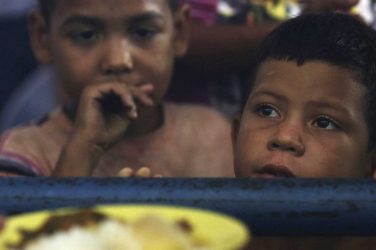A small slum in the midst of Rio de Janeiro’s scenic Tijuca Forest has set up its own biosystem project for waste and sewerage treatment in a drive to make the Brazilian city’s poorest areas more sustainable.
Vale Encantado, which means Enchanted Valley, installed a biodigester with the help of a local university to generate cooking gas for some of the favela’s 25 homes and for a local eco-tourism cooperative.
“We are the first community to set up a sewerage treatment system here,” Otávio Barros, head of the Vale Encantado Residents’ Association, said.
“Everyone used to throw (waste and sewerage) into an open sewer…(so) we set up a piping system,” said Barros.
Rio has about 1,000 slums, which are home to nearly one in four of the city’s population and typically lack a range of infrastructure and services, experts say.
The initiative is among 111 projects in a network of sustainable solutions in the slums, known as favelas.
The projects were mapped in a report launched last week by Catalytic Communities (CatComm), a charity that works with people in favelas toward better integration of informal settlements.
Under the umbrella name “Sustainable Favela Network”, the projects help to build resilience and environmental sustainability in favelas, CatComm said.
Most of the initiatives tackle environmental issues such as waste management, community gardens and the preservation of natural surroundings.
Rio’s Pontifical Catholic University built Vale Encantado’s biodigester as part of a state-funded research project.
Barros said the original goal was to connect all 25 houses at Vale Encantado to the biosystem. But a 10,000 reais ($3,000) funding shortfall means just five houses are fully using it.
“We are looking for another partner. What is lacking is not much … I worked to build it, and my house is not linked,” he said.
Once the system is fully implemented the idea is to persuade people to bring organic waste to the cooperative in exchange for fresh bread that it will bake using the energy generated. There is no other bakery close to the slum, Barros said.
“Then I can make a sustainable cycle: solid waste generates gas, I bake the bread and it comes back to the community,” Barros said.
This article was produced by the Thomson Reuters Foundation. Visit them at http://www.thisisplace.org













